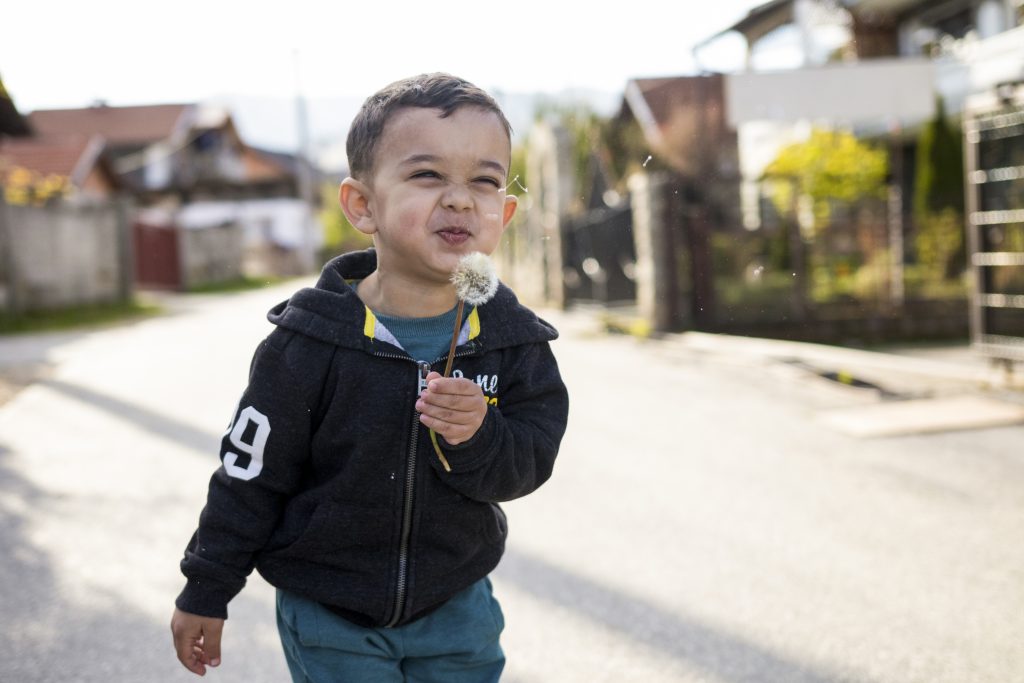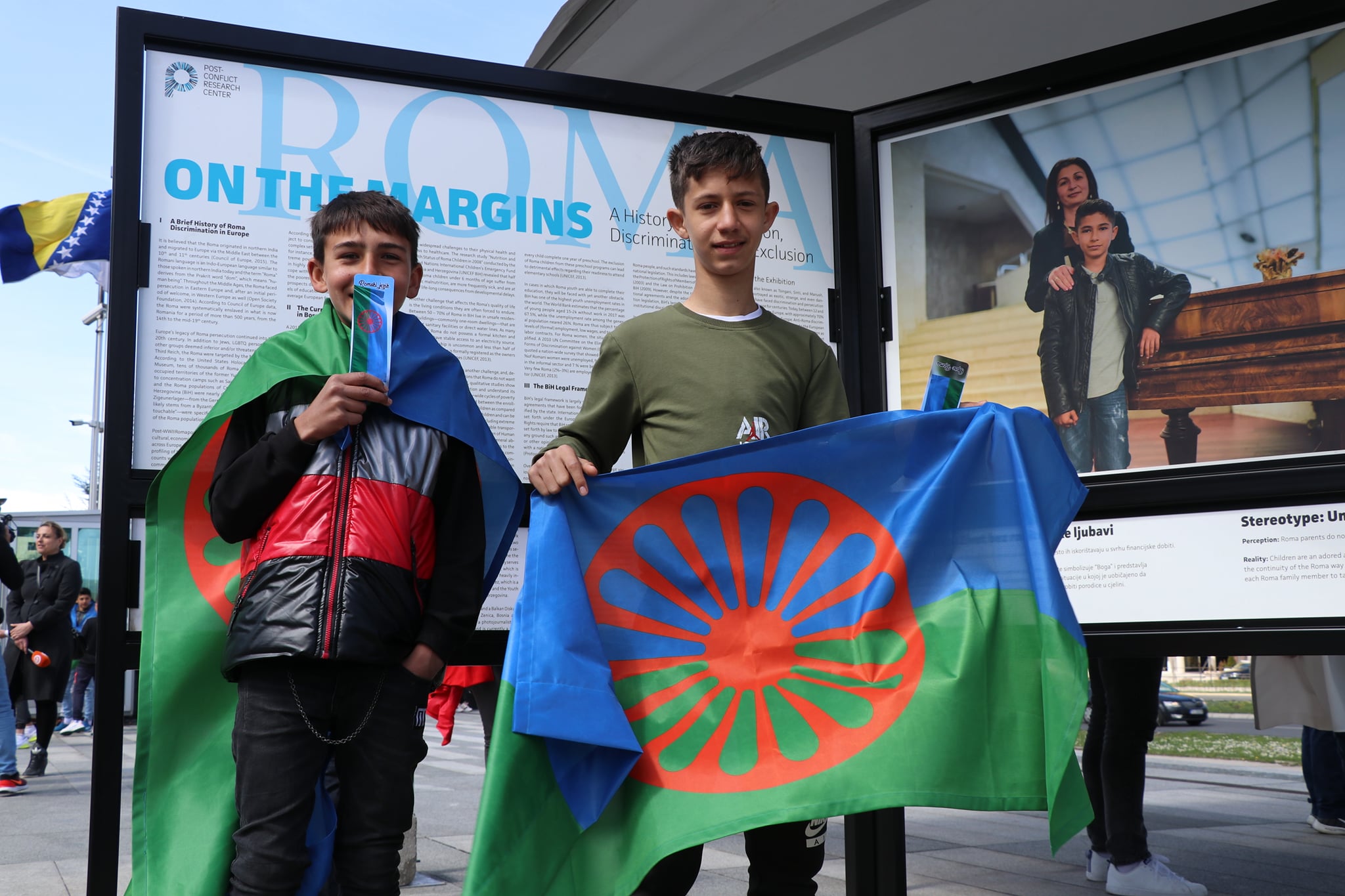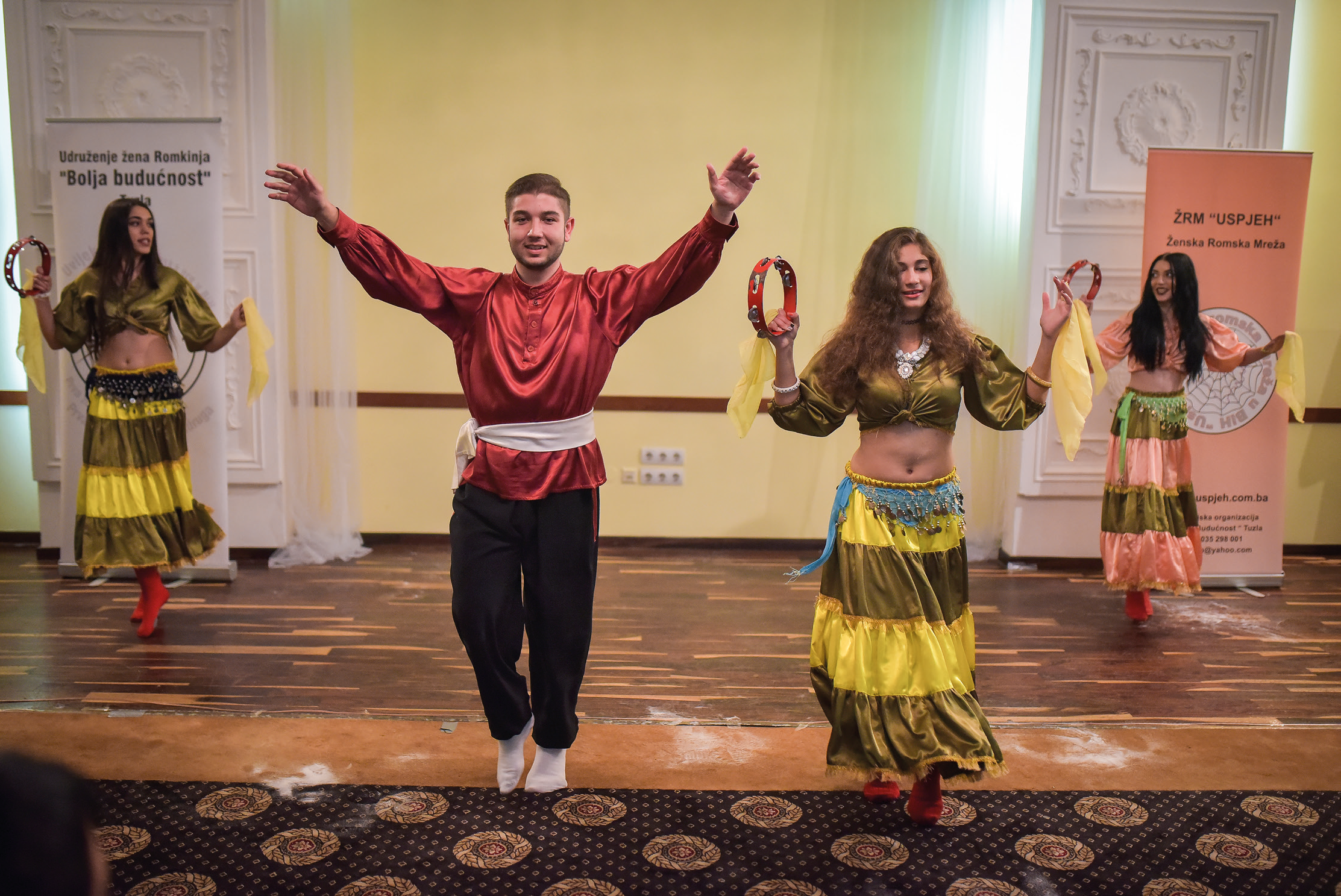
Roma villages have existed in Bosnia and Herzegovina (BiH) since the 19th century, and today, this population constitutes the largest minority in the country. Nevertheless, they are among the most marginalized, disenfranchised, and discriminated against communities in Bosnia and Herzegovina, and are tirelessly seeking basic human rights.
Estimates of the number of Roma in Bosnia and Herzegovina varies from source to source. According to the 2013 population census, the number is approximately 13,000. However, data from Roma associations suggests that the number is significantly higher—between 80 and 100 thousand—while institutional data indicates a population of between 40 and 50 thousand. International estimates also differ from the aforementioned figures, reflecting the systematic inconsistency regarding this community as well as the lack of will and effort to address the daily challenges faced by the Roma in Bosnia and Herzegovina.
Challenges Faced by Roma
Regionally as well as in Europe, Bosnia and Herzegovina stands out for the number of international human rights declarations to which it is a signatory, as well as for the number of laws, action plans, and other legislative measures it has adopted on this issue. However, the implementation of these plans and measures remains an issue. Initiatives such as the Strategy for Resolving the Roma Problem, the adoption of the Action Plan for Resolving the Roma Problem in Employment, Housing, and Healthcare, and the 2021-2025 Action Plan for the Social Inclusion of Roma and Roma women have considerable potential, but their realization falls short.
Nedžad Jusić, president of the Euro Rom Roma association, believes that allocating funds to Roma communities is crucial for their prosperity.
“With the 1.3 million budget foreseen for 2023 by the Ministry of Human Rights and Refugees, it’s impossible to work toward preserving Roma cultural identity, employment, and housing in the two entities and the Brčko District. Millions should be set aside, but unfortunately the funds are decreasing year by year, and the needs are growing,” said Jusić.
The insufficient allocated funding and the lack of will among authorities are compounded by the fact that 95% of the Roma community does not have a monthly income. This gives rise to numerous problems, including unemployment, limited access to education and healthcare, absence of official documents, and discrimination in all spheres of life.

Indira Bajramović, president of the Bolja Budućnost Roma Women’s Association, expressed concern about the situation and unfavorable living conditions in Roma communities.
“The situation in Roma communities is still very bad. A small number are employed in utility companies or perhaps similar positions, while the majority are unemployed, and live by collecting secondary raw materials. Unfortunately, we still have families that are not in the health care system, there is still discrimination and prejudice against the Roma population, as well as domestic violence. When you look directly at Roma settlements, they are places without infrastructure, some don’t have electricity or water, and the households are not connected at all. Most of these settlements are illegal, but although there has been talk of legalization for years, nothing happens,” said Bajramović.
The lack of initiative among the authorities has contributed to the subordinate status of the Roma in Bosnia and Herzegovina. While every major change starts with education, support for education is needed at both the state and local levels. In the absence of alternative options, members of the Roma community are often forced turn to activities like begging and crime in order to survive.
The tragic reality is that those in positions of authority, who have the power to ease the lives of the Roma community through legalizing their settlements and supplying them with basic necessities like water and electricity, are doing the exact opposite. One example is the “relocation” of the Roma settlement in Ilidža at the end of 2021, an action that left several families homeless and stripped of all that was familiar to them. As compensation for being evicted from their homes, the families were accommodated in container housing in the Rakovica settlement near Sarajevo, without water, electricity, and basic necessities.
Unfortunately, the problems faced by the Roma community in Bosnia and Herzegovina are not limited to the absence of initiative among the authorities. One of their most significant and painful challenges is discrimination by their fellow citizens. Due to the anti-Roma prejudices ingrained in our society, members of this community encounter discrimination in all aspects of their lives, from school and social interactions to employment and relationships with colleagues and peers. There are few Roma people who have not experienced numerous terrible instances of the inhumane treatment in our society.
Sandra Džemaili, a law student in Bihać, attests to the discrimination that exists in all spheres of society in Bosnia and Herzegovina. She personally experienced discrimination while pursuing her education, seeking employment, and serving as the president of the Young Anti-Fascists branch in Bihać and Bosnian Krajina.
“I was the president of the Young Anti-Fascists branch of Bihać and Bosnian Krajina, which I successfully led for 5 years. However, starting in May, individuals appeared who publicly presented themselves as members of the SDP and NiP parties of Bihać, and they asserted that the city’s Young Anti-Fascists association could not to be led by a ‘gypsy woman,’ alleging that there were ‘our own’ children in Bihać capable of holding that position,” explained Džemaili.
Džemaili noted that the OSCE and OHR in BiH intervene after noticing racist insults on social media, ordering an investigation into the alleged racist attack on a person from a national minority. The Ombudsman’s office based in Banja Luka has also taken an interest in this case, and the final court ruling is much anticipated.

Organizations and Advocates for Roma Rights
Numerous international and domestic organizations deal with the issue of the Roma community’s status in Bosnia and Herzegovina. Among these, the OSCE in BiH stand out for its activities in the country, which include producing regular reports on the position of minorities, promoting human rights, providing scholarships to Roma children, working to improve institutions, and cooperating with competent authorities and non-governmental Roma organizations.
Notable contributions also come from domestic Roma associations such as Kali Sara Roma Information Center, Euro Roma Association, Bolja Budućnost, and numerous others. Without their commitment to the well-being of the Roma community and their efforts in communication with authorities, media, and the international community, the progress achieved by the Roma in Bosnia and Herzegovina would not be possible.
These organizations launch initiatives, collect funds, invest in Roma education, draw attention to their problems, and organize educational and other proactive activities. A central focus for them is the introduction of Romani language, traditions, history, and culture into schools, which represents an important stride in improving the circumstances of this community. This would lead to a better understanding of the Romani people among the Roma themselves and the broader population. Understanding the unknown is the first step in accepting it.
Education is an essential component of the quest for positive change. Through the efforts and dedication of Roma organizations, collaboration with the international community, and the implementation of action plans by competent institutions, strengthening the Roma community and improving their position in Bosnia and Herzegovina becomes very possible.







